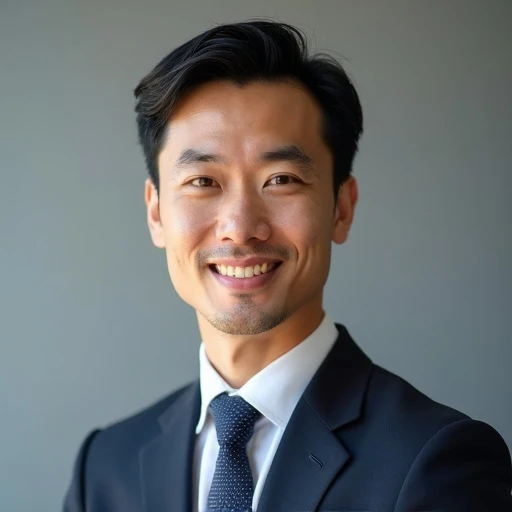A prominent Chinese artificial intelligence researcher has departed Anthropic, an American AI startup, to join Google DeepMind. The researcher, Yao Shunyu, cited Anthropic's characterization of China as an "adversarial nation" as a primary reason for his decision to leave.
This move highlights growing tensions in the global AI research community, particularly concerning geopolitical stances adopted by leading technology firms. The shift comes as US-based AI companies increasingly navigate complex international relations.
Key Takeaways
- Yao Shunyu left Anthropic for Google DeepMind.
- His departure was partly due to Anthropic's "anti-China statements."
- Anthropic labeled China as an "adversarial nation" last month.
- Yao will work on Google DeepMind's flagship Gemini models.
Researcher Cites "Anti-China Statements"
Yao Shunyu announced his departure from Anthropic on his personal website this Monday. He had worked at Anthropic for less than a year. His decision to join Google DeepMind was partly driven by his strong disagreement with Anthropic's rhetoric. The startup had recently described China as an "adversarial nation."
This label was applied last month when Anthropic began restricting access to its services. These restrictions targeted subsidiaries of Chinese companies globally. Yao found this stance problematic.
"Although, to be clear, I believe most of the people at Anthropic disagree with such a [characterisation], I don’t think there is a way for me to stay," Yao wrote on his website.
Fact: AI Talent from China
A 2022 study by MacroPolo indicated that 38% of top-tier AI researchers working in US institutions originated from China. This figure was higher than the number of researchers from the US itself. This suggests a significant contribution of Chinese talent to American AI development.
Yao Shunyu's Academic Background and New Role
Yao Shunyu brings a strong academic background to his new role at Google DeepMind. His resume shows he earned a PhD in theoretical and mathematical physics from Stanford University. Before that, he completed his undergraduate studies at Tsinghua University. At Tsinghua, he received the presidential award and the Yeh Chi-Sun prize. These are the highest honors for undergraduates at the elite Chinese institution.
After finishing a postdoctoral fellowship at the University of California, Berkeley, Yao joined Anthropic in October 2024. During his time there, he contributed to the development of the Claude 3.7 Sonnet model. This model was released in February of the current year.
Yao explained his initial choice to join Anthropic was due to its reputation. He considered it one of the best places for physicists to begin careers in AI research. He also noted the rapid pace of advancement in the AI field.
Industry Context: Rapid AI Development
The field of artificial intelligence is known for its fast-moving nature. Innovations and breakthroughs occur frequently. Researchers often move between leading companies and academic institutions to pursue cutting-edge projects. This dynamic environment can also be influenced by geopolitical factors and corporate policies.
Undisclosed Reasons for Departure
Beyond the stated opposition to Anthropic's China policy, Yao mentioned another significant reason for his departure. He described this additional factor as "more complicated" and could not disclose further details. This was due to its confidential nature, involving sensitive information. He summarized this aspect by stating, "It was good with you, but it is better without you."
His new position is as a senior research scientist in Google DeepMind’s core Gemini team. In this role, he will contribute to developing the company's flagship foundational models. This is a key area of AI research and development.
Contrasting Company Stances on China
Anthropic's public stance on China aligns with some views from the previous Trump administration. This administration had referred to Chinese AI as "adversary AI." Dario Amodei, CEO of Anthropic, has previously raised concerns about potential Chinese industrial espionage targeting US AI companies.
Other major American AI firms have also voiced criticism of China. For example, OpenAI has recently increased its critiques. This includes direct attacks on competitors such as Hangzhou-based DeepSeek and Beijing-based Z.ai. This indicates a broader trend of competition and tension within the AI industry.
- Anthropic's position: Labels China as an "adversarial nation," restricts access to services for Chinese company subsidiaries.
- OpenAI's actions: Increased criticism of Chinese competitors like DeepSeek and Z.ai.
Google DeepMind's Approach
In contrast to Anthropic and OpenAI, Google DeepMind's CEO, Demis Hassabis, has expressed a different perspective. Hassabis, whose mother is Chinese-Singaporean, has advocated for cooperation between the US and China. He believes the two nations should collaborate on areas of mutual interest, such as AI safety. This suggests a more open approach to international collaboration.
The differing views among leading AI companies highlight the complex geopolitical landscape surrounding artificial intelligence. These stances can influence talent acquisition and retention, as seen in Yao Shunyu's case.
Talent Mobility in AI
The movement of top AI researchers between companies is common. Recent hires at Facebook owner Meta Platforms for its superintelligence team included several graduates from elite Chinese universities. This demonstrates the global nature of AI talent acquisition.
Impact on AI Research Community
Yao Shunyu's departure is not an isolated incident. An anonymous former employee at OpenAI reported some uneasiness among AI researchers from China and other countries. This discomfort was attributed to OpenAI's rhetoric regarding China. Such sentiments can affect morale and lead to talent migration.
Last month, another prominent Chinese AI researcher, also named Yao Shunyu, reportedly left OpenAI. This individual joined Tencent Holdings. An employee told tech news site The Information that this Yao Shunyu has been meeting with different teams in his new capacity at Tencent. These movements underscore the competitive landscape for top AI talent and the influence of geopolitical factors on individual career decisions in the rapidly evolving AI sector.





